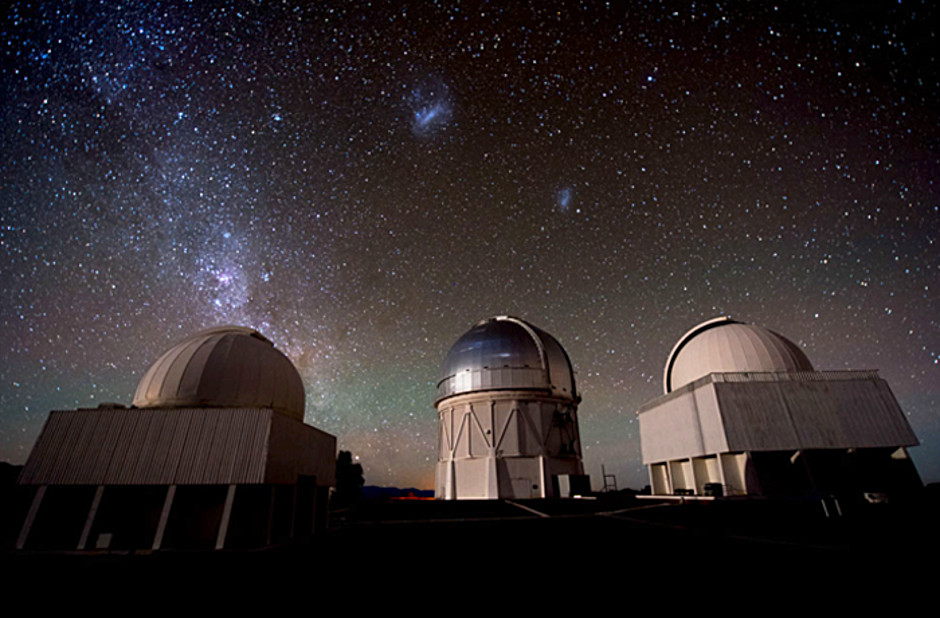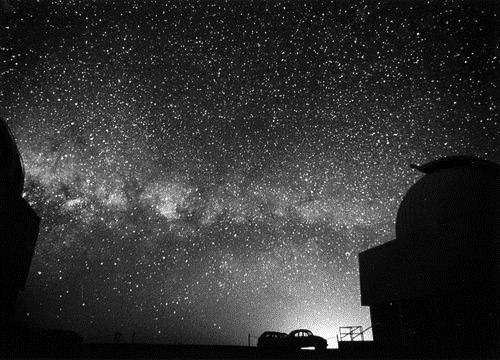Latin America
Related: About this forumChilean astronomical site becomes world’s first international dark sky sanctuary
Chilean astronomical site becomes world’s first international dark sky sanctuary
Posted on 12 August 2015 by Astronomy Now

[font size=1]
Moonrise over the telescope domes on Cerro Tololo, with the Large and Small Magellanic Clouds visible and the Galactic Centre rising. Image credit: Associated Universities for Research in Astronomy.
[/font]
A sanctuary is a place that invites deep contemplation in a safe and stable environment. Few places in the world provide a better opportunity to enjoy and contemplate the starry heavens than the Andean mountains of northern Chile. But even in this astronomy mecca lights can intrude to ruin the view, and thoughtful protection is needed as the nearby towns and cities grow in size.
At the International Astronomical Union meeting yesterday, the International Dark-Sky Association announced that the site of the Association of Universities for Research in Astronomy (AURA) Observatory in the Elqui Valley of northern Chile has been recognized and designated as the first International Dark Sky Sanctuary in the world. The site will be known as the “Gabriela Mistral Dark Sky Sanctuary” after the famed Chilean poet.
“The Gabriela Mistral Dark Sky Sanctuary will serve as an example of how collaboration among governmental and non-governmental stakeholders can preserve one of the most special places on the planet”, said IDA Executive Director J. Scott Feierabend.
The new IDA designation category reflects the need for special protections for the world’s darkest places where nighttime conditions are exceptionally threatened. In certain cases, the public may be excluded from these sites in order to further important conservation priorities.
More:
http://astronomynow.com/2015/08/12/chilean-astronomical-site-becomes-worlds-first-international-dark-sky-sanctuary/
[center]


The stars from the valley of Elqui[/center]
Science:
http://www.democraticunderground.com/122841351
Cleita
(75,480 posts)is the thing I miss most about once living in the Atacama desert. We lived at a high enough altitude that you could see many of them during the day as well because the thinner atmosphere made the sky a deeper blue than at sea level.
Thank you for posting this. It's making me feel nostalgic.
Judi Lynn
(160,601 posts)Isn't it supposed to be the driest place on earth?
No humidity standing between you and the great beyond.....
Would have never guessed the sky would be a more intense blue. Amazing.
The night sky photos around the observatories there are overwhelming. It has captured the world's attention by now as the spectacular place to study everything beyond the earth.
Your comments are always so worth reading, Cleita. Thank you.
Cleita
(75,480 posts)Also the altitude and thinner and clearer air creates an optical illusion of closeness with the stars that makes you feel that you can reach up and pluck them out of the sky. I did live at 11,000 feet altitude and you didn't have to drive far to get away from artificial light to be in the darkness you needed for the best view.